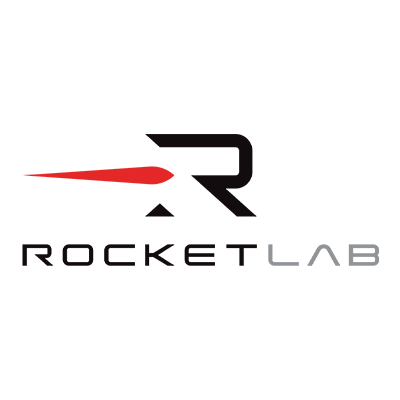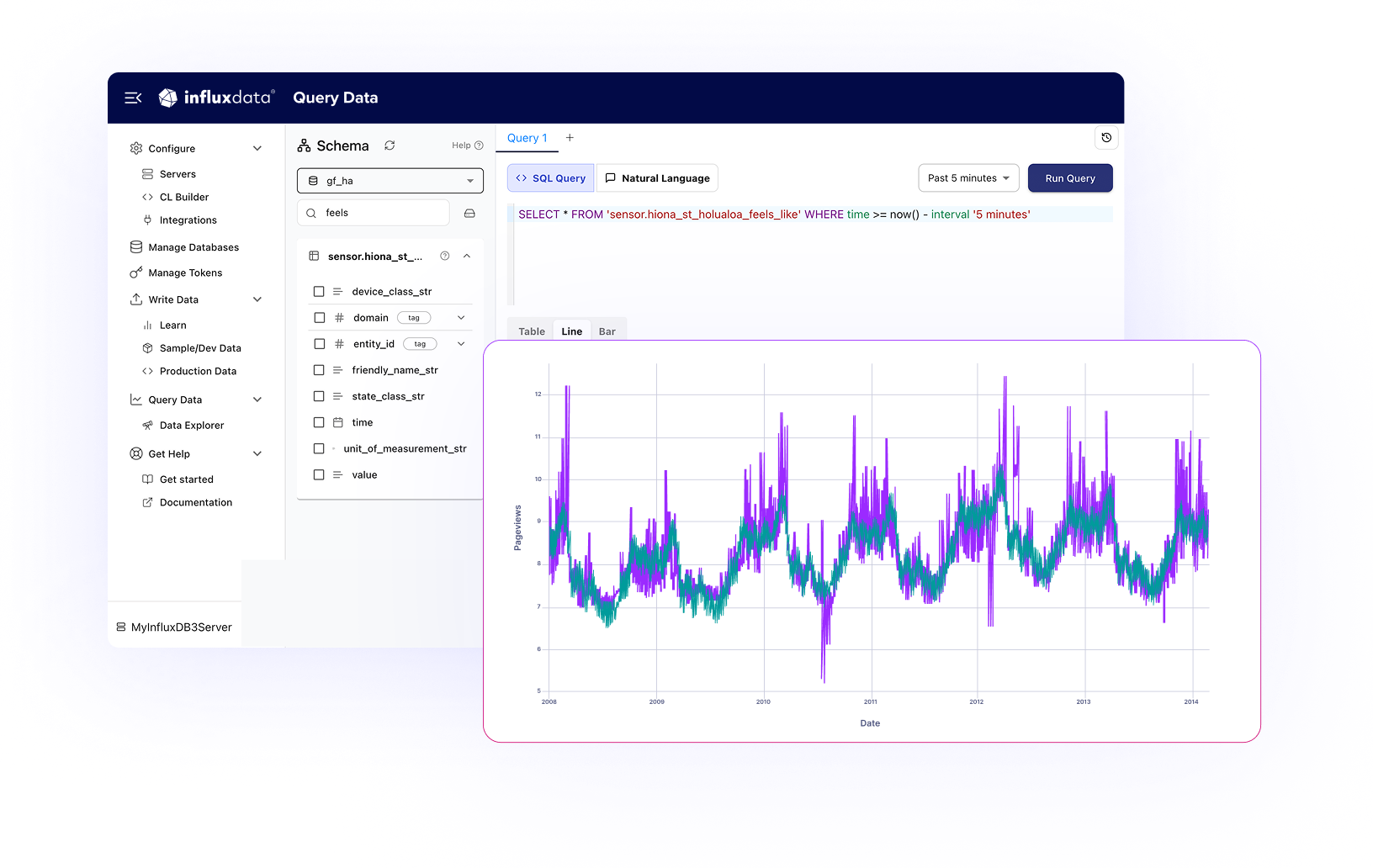Real-world AI starts with time series.
Time series starts with InfluxDB.
Join the millions of developers building real-time systems with InfluxDB, the leading time series database.
Get InfluxDBTry InfluxDB
Get started with InfluxDB 3 Enterprise
curl -O https://www.influxdata.com/d/install_influxdb3.sh && sh install_influxdb3.sh enterprise











Developers choose InfluxDB
More downloads, more open source users, and a stronger community than any other time series database in the world.
Try InfluxDB1B+
Downloads of InfluxDB via Docker
1M+
Open source instances live today
5B+
Downloads of InfluxData’s Telegraf
2,800+
Contributors
#1
Time series database
Source: DB Engines
Why InfluxDB
Manage high-volume, high-velocity data without sacrificing performance.
High-performance at scale
Manage millions of time series data points per second without limits or caps.
Run where
you need it
Run at any scale in any environment: in the cloud, on-prem, or at the edge.
Build with the
tools you love
Easily connect to your tech stack using data standards and 5K+ easy integrations.
InfluxDB is the engine behind the real-time data pipeline.
Real-time AI requires massive streams of time series. This allows to flow continuously through ingest, analysis, compression, and integration-fueling smarter, more autonomous systems.
See ways to get startedHigh-Speed Ingest
Ingest millions of series without impacting performance.
Real-Time Analytics
Transform and analyze unlimited time series in real-time.
Eviction and Lakehouse Integration
Automatically evicts cold data and streams it into lakes, warehouses, and AI/ML pipelines.
Compression and Downsampling
Best-in-class compression. Parquet files store more data with less space.
AI runs on time series
Predict the future based on the past.
InfluxDB captures high-resolution time series data with the precision and context AI models need to infer cause and effect, enabling real-time systems to detect, respond, and predict intelligently.
Learn More
Anomaly Detection
Find failure fast—detect anomalies in real-time, trigger automated responses, and adapt as conditions change.
Predictive Maintenance
Prevent downtime before it hits. Monitor equipment health and usage patterns to predict issues and resolve them before they start.
Autonomous Optimization
Build self-correcting systems. Enable models to self-learn and adapt through continuous retraining—automatically.
Deploy anywhere
Whether you’re building on-prem, private cloud, edge, or multi-tenant cloud, InfluxDB meets developers where they are.
Open and extensible
Integrate time series across AI/ML workloads and visualize instantly.
Explore integrations
Code in the languages you love
Read more in docs Python
Python
 Javascript
Javascript
 Go
Go
 C#
C#
300+ Telegraf plugins
Integrate your favorite tools with Telegraf, our popular open source connector with 5B+ downloads.
Client libraries
InfluxDB client libraries make it easy to integrate time series data into your applications using your favorite programming languages.
Community and ecosystem
InfluxDB includes a massive community of cloud and open source developers to help you work the way you want.
InfluxDB is a G2 Leader in Time Series
“InfluxDB is a strong database built specifically for time series data. It has made working with such data seamless and easy.”
— Verified G2 reviewer


